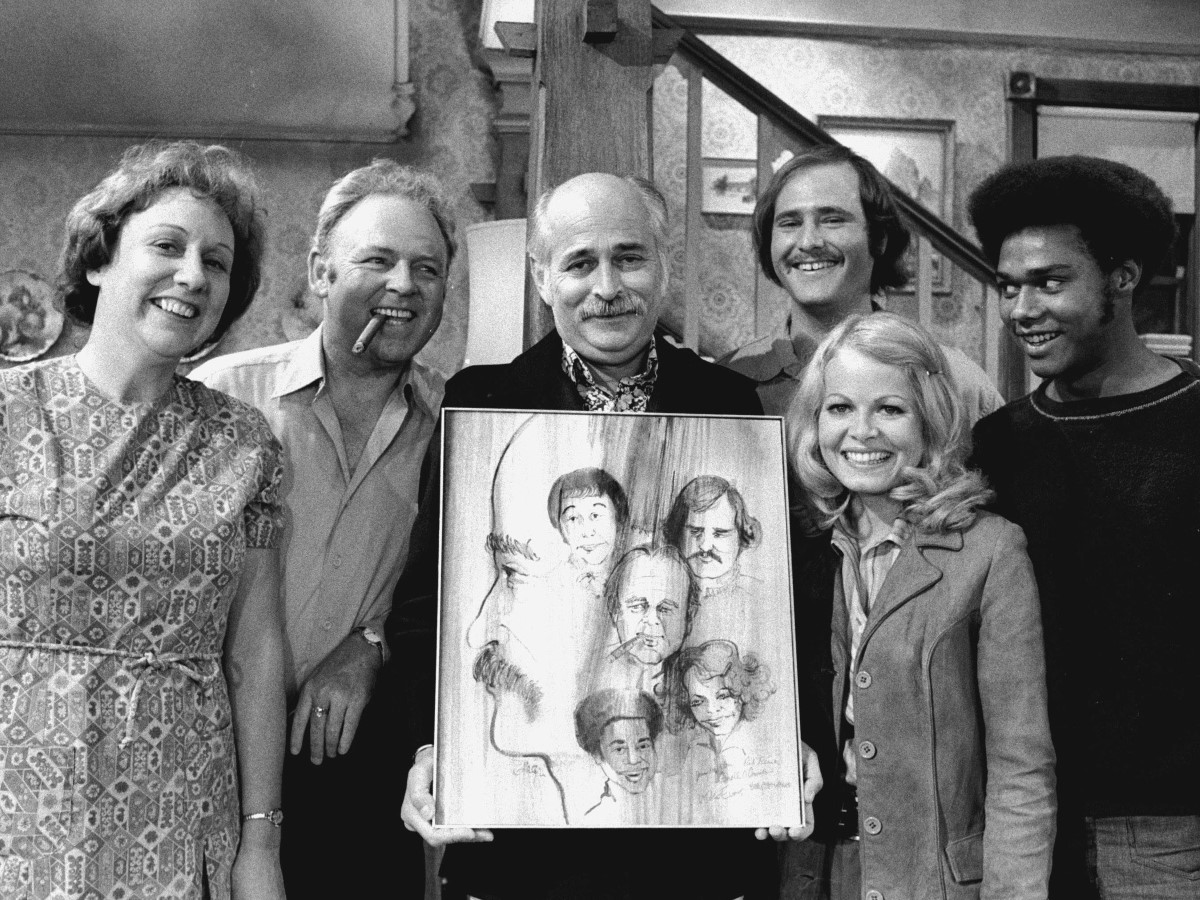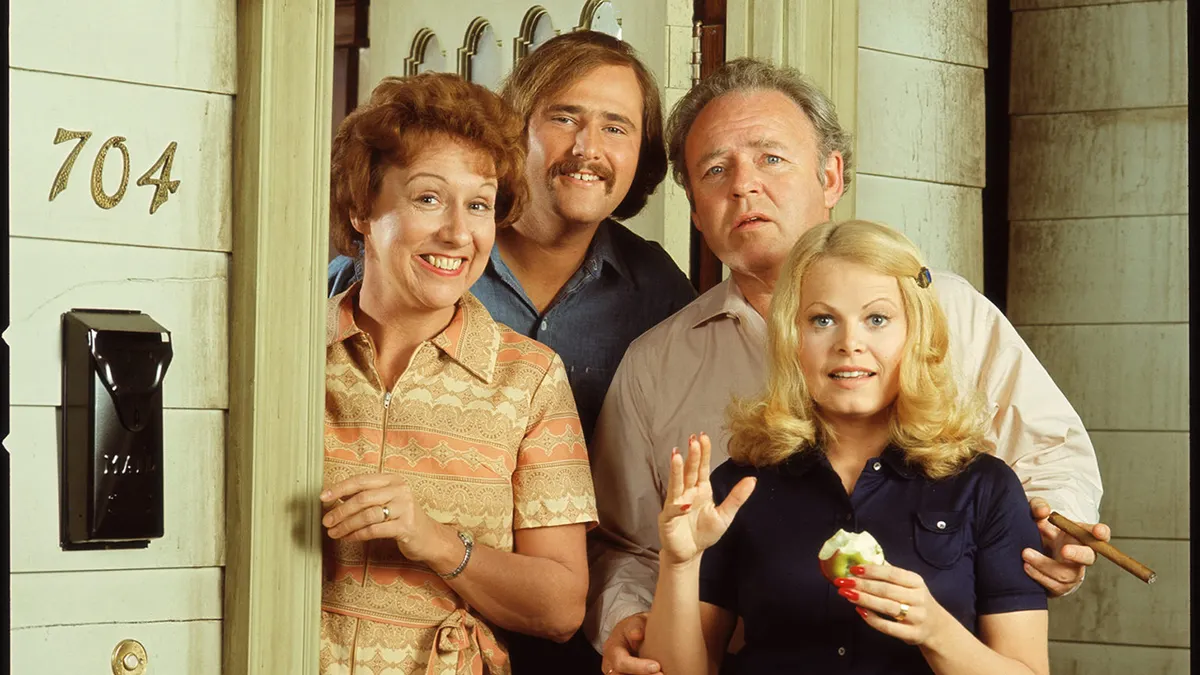by Alice Cucchetti
One of the most significant evolutionary leaps in TV serial language is the emergence of the antihero protagonist, formerly just the villain. The turning point was in 1999 with The Sopranos and its deep dive into the troubled psyche of mobster Tony. Over time, this device sometimes became a cheap way to scream “prestige television,” but in those early years straddling the millennium, these difficult men had an explosive impact, bringing unprecedented complexity to television.
Yet, this breed of antiheroes from HBO & Co. had a forerunner in the most mainstream context and generalist format of all: a 70s CBS sitcom. Archie Bunker, the lead character of All in the Family, caused such concern at its 1971 debut that CBS issued a warning before episodes (a trigger warning!): “The program you’re about to watch attempts to shed an ironic light on the frailties, prejudices, and concerns we all share. By making them a source of laughter, we hope to show – in a mature fashion – just how absurd they are.” Archie Bunker (played by Carroll O’Connor) was a middle-aged, Republican, bigoted, racist, homophobic, sexist worker who despised the ”long-haired” Vietnam War protesters (like his future son-in-law, the ultra-progressive Mike, portrayed by Rob Reiner!). He frequently erupted in fits of rage and longed for the “good old days” from his beloved armchair.
Norman Lear, the creator, based the character on a combination of a mid-60s English comedy and his own father, a traveling salesman who ended up in jail for fraud. His explicit and then-novel intention was to bring current events into the cozy, familiar living room of sitcoms, staging the daily clash between the Greatest Generation, which had endured the Depression and World War II, and the young boomers, fresh from civil rights struggles and looking towards a future of progress (…how the tables turn, huh?). Turning the TV screen into a mirror, even a merciless one, and not just a portal for pure escapism.

All in the Family became one of the greatest successes in US TV history, the most-watched program for five years (when this still meant tens of millions of viewers per week), marking the beginning of Norman Lear’s consecration, who left us at 101 last December 5, after a 70-year career that started writing sketches for Dean Martin & Jerry Lewis and continued until recently with Netflix’s remake of his One Day at a Time. From All in the Family sprang a multiverse of spinoffs and sequels more effective than the MCU – Maude, Checking In, Gloria, The Jeffersons, Good Times (the latter being the first shows centered on African American families) – and Lear dominated the sitcom scene for decades, with dozens of titles including Sanford and Son and the experimental Mary Hartman, Mary Hartman.
And All in the Family achieved its goal, even slipping out of its creator’s hands: controversial and endlessly debated during its airing, Archie Bunker remains an icon today, unnuancedly and uncomplexly adored by much of the conservative audience, who respond to his reactionary rants not with irony, but with enthusiasm and recognition. Just like, years later, part of the audience would cheer for Tony Soprano’s murders, root for Walter White, dream of becoming Don Draper. To explain why so many Americans loved Donald Trump, his advisor Steve Bannon once simply said, “He’s Archie Bunker!” And that’s not a stain, but another feather in the cap of Norman Lear’s legacy, who throughout his life was also a fervent Democrat activist and advocate for freedom of speech: real mirrors work that way too.
FilmTV, Issue 51, December 19, 2023

